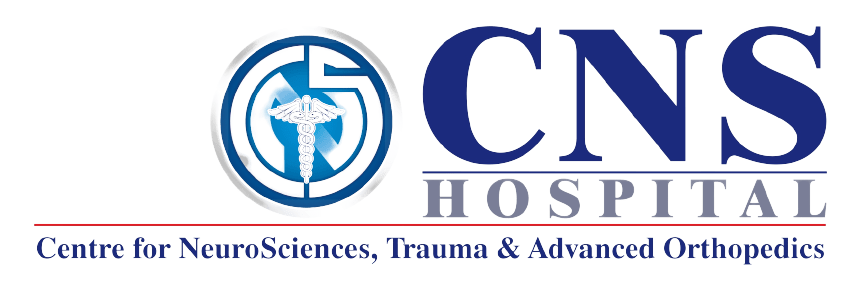Head Injury Treatment in Nashik
Head Injury
A head injury is any kind of trauma or injury to the scalp, skull, or brain. Head injuries can range in severity from mild to severe and can be caused by a variety of factors such as falls, sports-related accidents, car accidents, or physical violence.
Visit CNS Hospital for head injury treatment in Nashik. CNS Hospital is the well-equipped with advancement infrastructure facilities.
Mild head injuries, also known as concussions, often result in symptoms such as headache, dizziness, confusion, and temporary loss of consciousness. These symptoms typically resolve within a few days to a few weeks with rest and careful monitoring.

Severe head injuries, on the other hand, can be life-threatening and require immediate medical attention. Symptoms of severe head injuries can include loss of consciousness, seizures, severe headache, vomiting, difficulty speaking or understanding speech, and weakness or numbness in the limbs.
It is important to seek medical attention for any head injury, especially if the injury is severe or if the individual experiences any concerning symptoms. In some cases, imaging tests such as CT scans or MRIs may be necessary to assess the extent of the injury and determine the appropriate course of treatment.
Head injury symptoms
Symptoms of a head injury can vary depending on the severity of the injury. Mild head injuries, also known as concussions, may result in the following symptoms:
- Headache
- Dizziness or lightheadedness
- Confusion or feeling dazed
- Blurred vision
- Ringing in the ears
- Nausea or vomiting
- Sensitivity to light or noise
- Fatigue or feeling tired
These symptoms may occur immediately after the injury, or they may appear gradually over the next few hours or days.
Severe head injuries may result in the following symptoms:
- Loss of consciousness
- Convulsions or seizures
- Dilated pupils
- Clear fluids draining from the nose or ears
- Inability to move one or more limbs
- Severe headache that gets worse over time
- Persistent nausea or vomiting
- Confusion, agitation, or slurred speech
If you or someone you know has sustained a head injury and experiences any of the above symptoms, seek medical attention immediately. Even if the injury seems mild, it is important to get it checked out to prevent any potential complications.
Risk factors of head injury
There are several risk factors that can increase the likelihood of a head injury. These include:
Age: Infants, young children, and older adults are more susceptible to head injuries than other age groups.
Participation in high-risk activities: Activities such as contact sports, extreme sports, and military service can increase the risk of head injuries.
Alcohol and drug use: The use of alcohol or drugs can impair judgment and coordination, increasing the risk of falls and accidents that can lead to head injuries.
Poor health and medical conditions: Certain medical conditions, such as epilepsy or bleeding disorders, can increase the risk of head injuries.
Occupation: Some professions, such as construction or mining, carry a higher risk of head injuries due to the nature of the work.
Previous head injuries: Individuals who have previously sustained head injuries are more likely to experience additional head injuries.
Certain medications: Certain medications, such as blood thinners, can increase the risk of bleeding in the brain in the event of a head injury.
It is important to take appropriate precautions and safety measures to minimize the risk of head injuries, especially for individuals with any of the above risk factors. These precautions may include wearing protective headgear during high-risk activities, maintaining a healthy lifestyle, and avoiding the use of drugs and alcohol before engaging in activities that require coordination and balance.
Diagnosis of head injury
The diagnosis of a head injury typically involves a combination of physical examination, medical history, and diagnostic tests. The goal of diagnosis is to assess the extent of the injury, identify any complications, and determine the appropriate course of treatment.
Physical Examination: The doctor will conduct a physical examination to assess the patient’s neurological status, looking for signs of injury, such as swelling, bruising, or lacerations. They will also evaluate the patient’s cognitive function, including memory, orientation, and attention span.
Medical History: The doctor will ask about the circumstances of the injury, including the cause, timing, and symptoms. They will also ask about the patient’s medical history and any medications or supplements they are taking.
Diagnostic Tests: Depending on the severity of the injury, the doctor may order diagnostic tests such as a CT scan or MRI to evaluate the extent of the injury and identify any complications such as bleeding or swelling in the brain. Blood tests may also be ordered to evaluate the patient’s overall health and to rule out other possible causes of symptoms.
In some cases, the doctor may also perform additional tests such as an electroencephalogram (EEG) to evaluate brain activity, or a neuropsychological assessment to evaluate cognitive function and identify any areas of impairment.
The diagnosis of a head injury is important to ensure proper treatment and monitoring. Treatment may include rest, medication to control symptoms such as pain or nausea, and in some cases, surgery to address complications such as bleeding or swelling in the brain.
Treatment of head injury
The treatment of a head injury depends on the severity and type of injury. Mild head injuries or concussions may not require specific treatment other than rest and monitoring for worsening symptoms. However, moderate to severe head injuries require prompt and appropriate medical attention to prevent complications and reduce the risk of long-term damage.
Here are some treatment options for head injuries:
Observation and Rest: For mild head injuries, the person may be asked to rest and avoid any activities that can put stress on the brain such as physical or mental activity. They may be monitored for symptoms and may be advised to follow up with their healthcare provider if symptoms worsen.
Medications: Pain relievers such as acetaminophen or ibuprofen can be used to manage headache or pain. Anti-nausea medication may also be prescribed to manage nausea and vomiting.
Surgery: In severe cases of head injury where there is bleeding, swelling or brain damage, surgery may be required to alleviate the pressure on the brain and prevent further damage.
Rehabilitation: For people who have suffered moderate to severe head injuries, rehabilitation may be necessary to restore lost function. This can include physical therapy, occupational therapy, and speech therapy.
Psychotherapy: In some cases, psychotherapy may be necessary to address psychological or emotional issues that arise as a result of the head injury.
It is important to seek prompt medical attention if you or someone you know has suffered a head injury. Treatment depends on the type and severity of the injury, so it is important to follow your healthcare provider’s recommendations for care and follow-up.
Head injury can caused by various reasons but getting proper treatment before any severe circumstances is important get proper head injury treatment at CNS Hospital in Nashik.

